Principal Investigator
 I am an Associate Professor in the Department of Biological Sciences, and also hold graduate faculty appointments in the Department of Ecology & Evolutionary Biology and the Department of Physical & Environmental Sciences. A mathematical ecologist by training, I am broadly interested in understanding how climate change, land use change, and other anthropogenic influences alter the dynamical interactions that shape ecosystems. My research blends the development of mathematical and statistical models with field data collection and the analysis of existing long-term datasets, in an effort to identify the mechanisms driving change, forecast likely future impacts of global change, and help develop mitigation strategies to address pressing conservation and wildlife health concerns. I take a global perspective and work on a variety of systems, ranging from the High Arctic to the tropical rainforests of Central America. Current efforts primarily focus on how global change impacts the population and community dynamics of wildlife, their interactions with parasites, and the spread of disease. I am also a member of the International Union for the Conservation of Nature (IUCN) Species Survival Commission (SSC) Polar Bear Specialist Group (PBSG), a member of the Canadian Ecological Forecasting Initiative, an Associate Editor of the journal Proceedings of the Royal Society of London B: Biological Sciences, and help lead the University of Toronto EEB Conservation Science Group.
I am an Associate Professor in the Department of Biological Sciences, and also hold graduate faculty appointments in the Department of Ecology & Evolutionary Biology and the Department of Physical & Environmental Sciences. A mathematical ecologist by training, I am broadly interested in understanding how climate change, land use change, and other anthropogenic influences alter the dynamical interactions that shape ecosystems. My research blends the development of mathematical and statistical models with field data collection and the analysis of existing long-term datasets, in an effort to identify the mechanisms driving change, forecast likely future impacts of global change, and help develop mitigation strategies to address pressing conservation and wildlife health concerns. I take a global perspective and work on a variety of systems, ranging from the High Arctic to the tropical rainforests of Central America. Current efforts primarily focus on how global change impacts the population and community dynamics of wildlife, their interactions with parasites, and the spread of disease. I am also a member of the International Union for the Conservation of Nature (IUCN) Species Survival Commission (SSC) Polar Bear Specialist Group (PBSG), a member of the Canadian Ecological Forecasting Initiative, an Associate Editor of the journal Proceedings of the Royal Society of London B: Biological Sciences, and help lead the University of Toronto EEB Conservation Science Group.
Contact: peter.molnar@utoronto.ca
Postdoctoral Fellows
Mitacs Elevate Postdoctoral Fellow
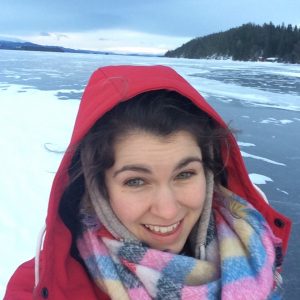
My research is centered on the eco-evo-physiology nexus. I am broadly interested in understanding the role that energy and metabolic processes play in determining how individuals, populations, and interacting species respond to changing environments. I address this using a combination of field, laboratory, and modelling approaches in a range of taxa, from invertebrates to fishes and mammals. My current postdoctoral research is focused on developing and applying mechanistic models of energy uptake and use in polar bears to explain historic population trends. My overarching aim is to use such dynamic energy budget models to forecast future polar bear population dynamics under novel sea ice reductions projected to occur with climate change.
Dr. Juan Sebastián Vargas Soto
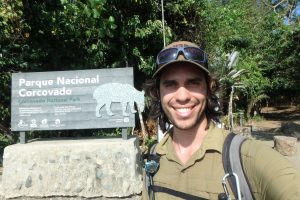
My research focuses on understanding anthropogenic effects on wildlife, and in particular, on how human modifications to the landscape and resultant changes in wildlife communities can facilitate parasite and disease transmission. I use a combination of field surveys and laboratory diagnostics to characterize host-parasite systems, and mathematical modelling to maximize the knowledge we can gain from field data.
I studied biology at the University of Costa Rica, and then obtained my PhD in Ecology and Evolutionary Biology here in the Molnár Lab. My doctoral dissertation was a case study of how disturbance affects the wildlife community and helminth transmission between wild felines and domestic dogs in a rural area in southern Costa Rica. Such interactions between wildlife, domestic animals, and humans, could be particularly common in urban environments and lead to significant risk of disease transmission across species. As a Postdoctoral Fellow, I am now applying the approaches and ideas I developed in Costa Rica to understand these risks in an urban environment, studying the transmission of a zoonotic tapeworm between wild canids (coyotes, red foxes) and domestic dogs in the city of Toronto.
I enjoy exploring the city, in search of great ramen and the occasional Pokémon.
https://juanvargassoto.wordpress.com/
Graduate Students
PhD Candidate
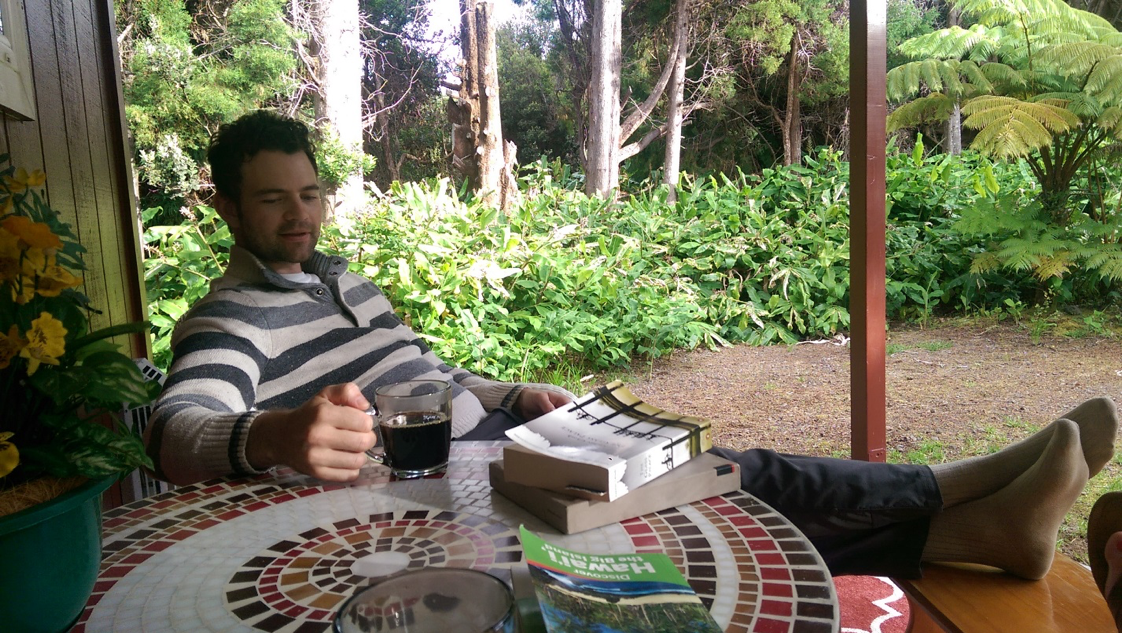
My research is concerned with the effects of climate change on the spread of wildlife diseases. I use physiological and population dynamics models to understand how multiple temperature dependencies affecting different life-cycle stages influence parasite distributions. In particular, I am interested in how warming temperatures are contributing to a recently observed range expansion of muskox and caribou lungworms in the Canadian Arctic.
PhD Candidate (co-supervised by Nicholas Mandrak)
WCS W. Garfield Weston Fellow, 2018 & 2019
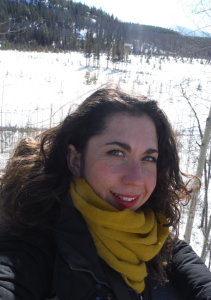
My main research interests lie in predicting how changing environmental conditions affect the ability of species to establish and thrive in novel locations, particularly invasive species, parasites and diseases of wildlife health concern. I am working in partnership with the Yukon government and multiple local stakeholder groups to examine the potential impacts of the ongoing range expansion of winter ticks (Dermacentor albipictus) into Yukon. Using a combination of fieldwork, modelling and citizen science, I aim to develop new approaches to understanding population dynamics of species with little data but potentially large implications for conservation policy and practice.
https://emily-chenery.webnode.com/
PhD Candidate
University of Toronto School of Cities Graduate Student Fellow, 2022-23
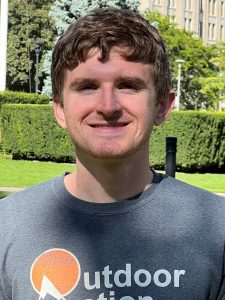
I am interested in examining how land use and habitat fragmentation affect animal movement and the transmission of parasites and disease within and among species. For my PhD research, I am focusing on host-parasite dynamics at the wildlife-domestic interface in the Greater Toronto Area (GTA) – using camera traps to monitor the movement and abundance of local wildlife, scat sampling to identify the composition and spatial structure of their parasite community, and mathematical models to examine transmission pathways among wildlife and domestic animals. By taking this integrative perspective, I am hoping to inform city planners, both in the GTA and beyond, on approaches for maximizing conservation benefits while minimizing risks of disease transmission and spillovers along urban gradients.
Alumni
Postdoctoral Fellows
Dr. Stephanie Peacock – NSERC Postdoctoral Fellow (2016-2019): “Migration and Parasitism in the Changing Canadian Arctic”. (subsequent position: Banting Postdoctoral Fellow, Kutz Lab, University of Calgary; http://stephaniejpeacock.wixsite.com/research)
Graduate Students
Stephanie Penk – PhD Thesis (2022): “Linking Polar Bear Physiology and Ecology via Models of Their Energetics”.
Korryn Bodner – PhD Thesis (2021): “Parasitism, Predation & Prediction: Modelling Variations in Ecological Interactions from Mechanisms to Networks”. (subsequent position: Research Associate, MAP Centre for Urban Health Solutions, St. Michael’s Hospital, Unity Health Toronto; https://korrynbodner.webnode.page/)
Juan Sebastián Vargas Soto – PhD Thesis (2021): “Community Disturbance and Host-Parasite Interactions at the Wildlife-Domestic Interface in a Neotropical Biodiversity Hotspot”. (subsequent position: Postdoctoral Fellow, Laboratory of Quantitative Global Change Ecology, University of Toronto Scarborough; https://juanvargassoto.wordpress.com/)
Melissa Orobko – MSc Thesis (2016): “Alternate Stable States in Coupled Fishery-Aquaculture Systems”. (subsequent position: PhD Candidate, Côté-Lab, Simon Fraser University)
Undergraduate Students
Jelany Duali – 4th-year undergraduate thesis (2022): “Interactions between Domestic Dogs and Wild Canids along an Urban Gradient”. (subsequent position: MSc Student, Norris Lab, University of Guelph)
Pranav Sadana – 4th-year undergraduate thesis (2020): “Estimating Polar Bear Body Composition Parameters to Improve Climate Change Impact Predictions”. (subsequent position: MSc Student, Willis Lab, University of Winnipeg)
Jessica Phillips – 4th-year undergraduate thesis (2016): “The Effects of Habitat and Host Characteristics on the Thermal Sensitivity of Helminth Development”. (subsequent position: DPhil Candidate/Rhodes Scholar, University of Oxford)
Devni Kumarasinghe – 2nd-year undergraduate research project (2022): “Multi-Species Occupancy Modelling of Mesopredators in the Greater Toronto Area”.
Avril Wang – Laidlaw 2nd-year Undergraduate Research and Leadership Scholarship project (2021): “Host-Parasite Dynamics at the Wildlife-Domestic Interface in the Greater Toronto Area”.